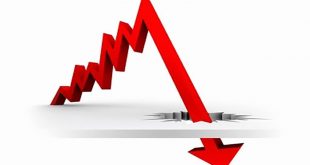In a Wall Street Journal opinion piece and an accompanying paper and blog post, John Cochrane and Amit Seru argue that vested interests prevent change towards a simpler, better-working financial system. They describe various “bail-outs” since 2020, in the U.S. financial sector and elsewhere. They point out that in Switzerland, too, the government orchestrated takeover of Credit Suisse by UBS relied on taxpayer support. And they conclude that regulatory measures after the great financial...
Read More »“Bank walk”: The first domino to fall?
In early May, Reuters published a report that truly captured my attention. “European savers are pulling more of their money from banks, looking for a better deal as lenders resist paying up to hold on to deposits some feel they can currently live without,” the article reported. Over in the US, we see a very similar picture. As the FT also recently reported, “big US financial groups Charles Schwab, State Street and M&T suffered almost $60bn in combined bank deposit outflows in the...
Read More »“Bank walk”: The first domino to fall?
In early May, Reuters published a report that truly captured my attention. “European savers are pulling more of their money from banks, looking for a better deal as lenders resist paying up to hold on to deposits some feel they can currently live without,” the article reported. Over in the US, we see a very similar picture. As the FT also recently reported, “big US financial groups Charles Schwab, State Street and M&T suffered almost $60bn in combined...
Read More »Banking crisis: The new bailout strategy
Part I of II The recent turmoil that has roiled the global banking sector has placed central bankers in an impossible position: Cut rates and avert a domino-style disaster in the industry and a possible deep and prolonged recession in the wider economy or stay the hiking course to combat the still untamed inflationary pressures? Arguably the great losers in both cases will be the taxpayers and the average working household. The recent turmoil in the...
Read More »Banking crisis: The new bailout strategy
Part I of II The recent turmoil that has roiled the global banking sector has placed central bankers in an impossible position: Cut rates and avert a domino-style disaster in the industry and a possible deep and prolonged recession in the wider economy or stay the hiking course to combat the still untamed inflationary pressures? Arguably the great losers in both cases will be the taxpayers and the average working household. The recent turmoil in the banking sector, both in the...
Read More »Socialism and Gold
Most people assume that the central bank prints money when it buys bonds. They further assume that this increase in the quantity of money causes an increase in the general price level. And, this leads them to assume that the value of the money is 1 / P (P is the general price level). Therefore, when the central bank prints money to buy bonds, it is diluting the value of the money held by everyone—in proportion to the amount printed divided by the total amount in...
Read More »Treasury Direct
A common argument against retail central bank digital currency (CBDC) is that CBDC would undermine financial stability by allowing the general public to swiftly move funds from banks to a government account. But in several countries such swift transfers are possible already today—in the US through Treasury Direct. (The argument also has conceptual flaws, see the paper On the Equivalence of Public and Private Money with Markus Brunnermeier.)
Read More »Negativzinsen für Kunden bei Raiffeisen vorerst vom Tisch
Auf die Frage, ob auch die Raiffeisen-Gruppe künftig Strafzinsen verrechnen will, erklärte der 58-jährige Lachappelle: “Ich kann mir das nicht vorstellen.” Wenn bei Sparkonti Negativzinsen eingeführt würden, sei die Gefahr gross, dass es zu einem “Bank Run” komme – also dass die Sparer ihr Geld von den Banken abziehen. Im Privatkundengeschäft erhebt unter anderem die UBS Negativzinsen für Sparer ab zwei Millionen Franken. Die Credit Suisse will per Anfang 2020...
Read More »How to Prevent Cash Hoarding when Interest Rates are Strongly Negative
On swissinfo.ch, Fabio Canetg explains how the Swiss National Bank prevents banks from hoarding cash rather than holding reserves at the central bank (which pay negative interest). He points to the following sentence in the SNB’s December 2014 press release (my emphasis) and he speculates that banks could, in principle, implement similar schemes to keep depositors from withdrawing cash: The threshold currently corresponds to 20 times the minimum reserve requirement for the reporting...
Read More »“Public versus Private Digital Money: Macroeconomic (Ir)relevance,” VoxEU, 2019
VoxEU, March 20, 2019, with Markus Brunnermeier. HTML. Both proponents and opponents have suggested that CBDC would fundamentally change the macroeconomy, either for the better or the worse. We question this paradigm. We derive an equivalence result according to which the introduction of CBDC need not alter the allocation nor the price system. And we argue that key concerns put forward in discussions about CBDC are misplaced. See also our VoxEU book chapter and my paper from last year.
Read More » Swiss Economicblogs.org
Swiss Economicblogs.org


